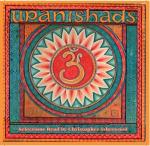|
This section contains 3,647 words (approx. 13 pages at 300 words per page) |

|
[Auden, Isherwood, Spender, and Upward] set themselves up as the Next Generation (after Joyce, Huxley and Eliot) and achieved literary eminence by a kind of coup d'état….
Yet of the group, Isherwood seemed to be the odd man out. Auden and Spender were starting where Eliot left off, writing about the world of aeroplanes and pylons and guerrilla warfare. Upward's prose in Railway Accident and Journey to the Border was as complex and allusive as you would expect from someone who knew his Ulysses by heart. By comparison, Isherwood seemed deliberately naive. There was no evidence that he'd ever read anybody—except possibly the early novels of Knut Hamsun, which have the same artless directness. How could he reconcile being The Novelist—one of the company of Balzac and Dickens and Tolstoy—with this deliberately low-key approach? (p. 313)
[Isherwood's detached, observant first-person narrative is reminiscent of] Henry...
|
This section contains 3,647 words (approx. 13 pages at 300 words per page) |

|


